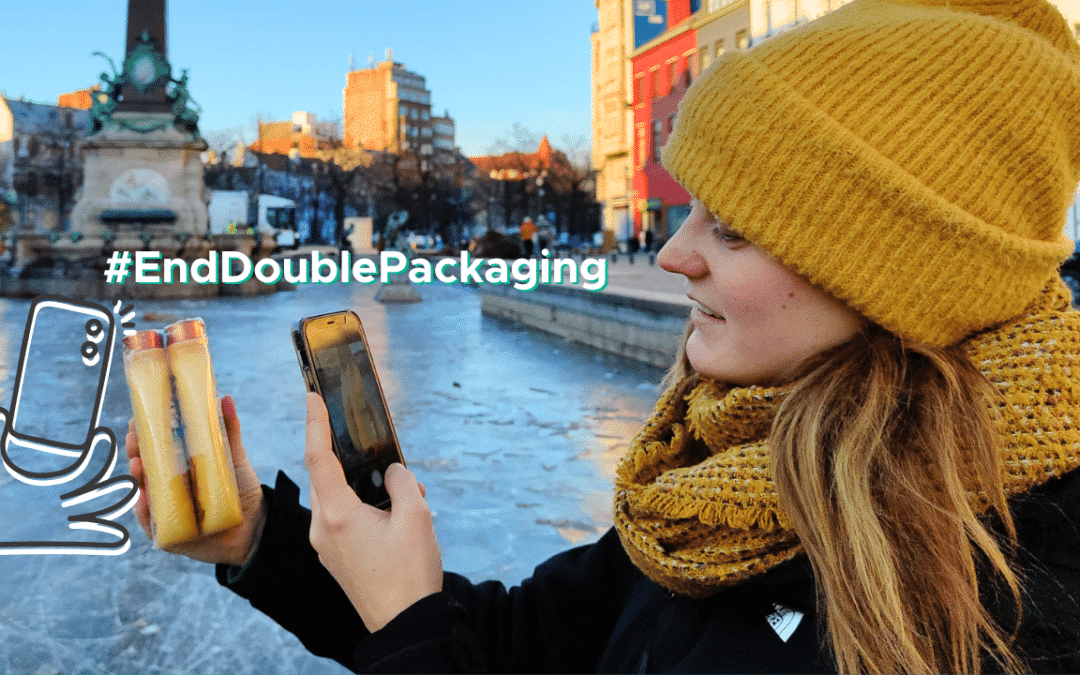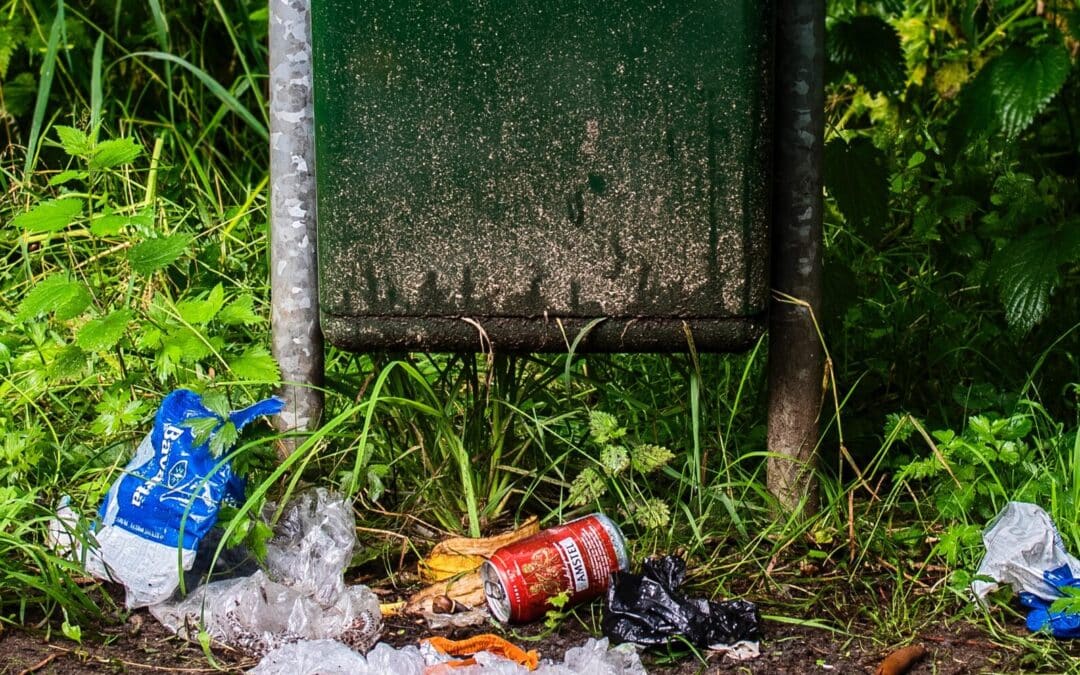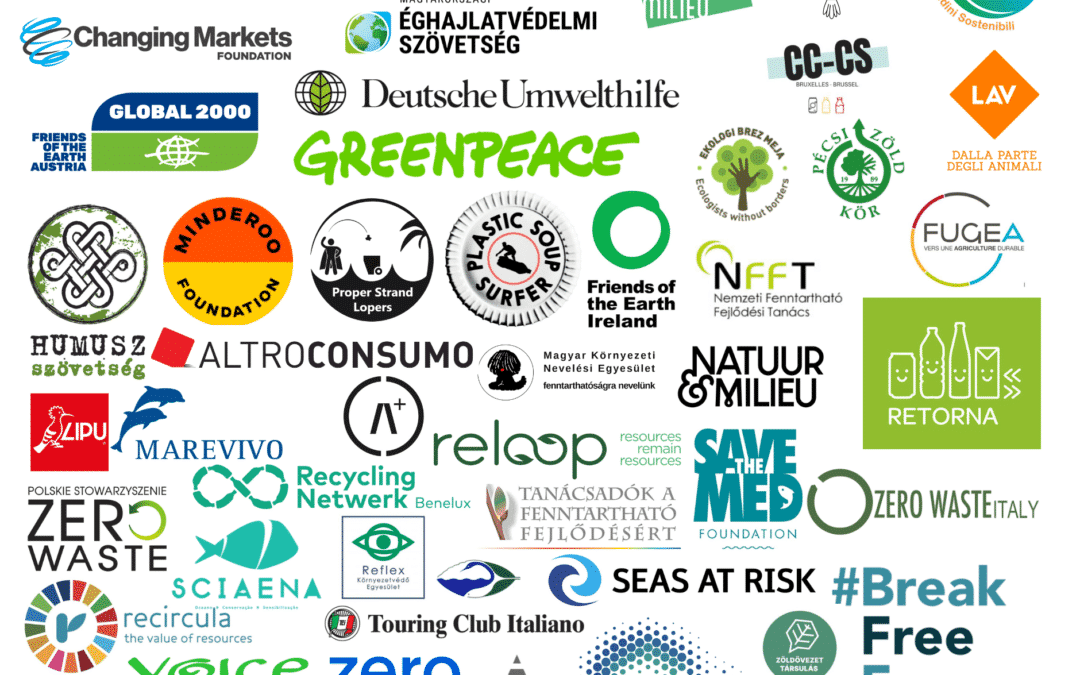The Dutch government has decided today that the Dutch deposit system will be expanded to beverage cans, coming into effect on December 31, 2022.
“The deposit return system will reduce the number of cans in litter with 70 to 90 percent. This is a major victory for the environment”, the six environmental organizations Recycling Netwerk, Stichting De Noordzee, Plastic Soup Foundation, Plastic Soup Surfer, Greenpeace and Natuur & Milieu state in a joint press release.
The dutch deposit return system currently only applies for large plastic bottles and most glass beer bottles. For decades, a small group of members of the Dutch beverage and food industry has prevented a deposit return system on small plastic bottles and cans in the Netherlands.
The outrage about plastic pollution and the sense of urgency to tackle litter has grown in recent years. The environmental movement and society at large, represented in the Statiegeldalliantie (Dutch-Belgian Alliance for a deposit return system) increased the pressure. A study commissioned by the Dutch government concluded that deposit return systems reduce the presence of cans and bottles in the litter by 70 to 90 percent,.
The State Secretary for Infrastructure and Water Management Stientje van Veldhoven (political party D66) presented the companies involved with an ultimatum: they either reduced the amount of beverage packaging as found in litter by 70%, or the government would expand the deposit return scheme. Initially, the agreement only applied to the small plastic bottles. The number of small plastic bottles in litter did not decrease, but increased in 2019. That is why the Dutch cabinet decided in April 2020 to put a deposit on the small plastic bottles, which will go into effect on1 July this year, in five months.
After parliamentary motions of MPs Jan Paternotte (political party D66) and Carla Dik-Faber (political party ChristenUnie) in October 2019, the government in April 2020 decided to set up a similar trajectory for cans, with a deadline for industry in the second half of 2021. When the government’s monitoring data over the first half of 2020 showed no decrease, but an increase of 19 percent in the number of cans in the environment, we asked the cabinet in a joint response to the public consultation to decide to advance the decision, and take it before the elections in March 2021. The cabinet has granted this request today.
The deposit return system for bottles and cans must now be designed in a consumer-friendly way. The vast majority of empty beverage packagings with a deposit are returned to the supermarket. It is therefore important that this sector will cooperate in order to enable consumers to return their empty cans to the supermarket. Horeca and small companies have been officially excluded from any take-back obligation by the government.
It is yet to be seen whether cans containing juices and dairy are excluded from the deposit bill, as is the case for plastic bottles. The environmental organizations point out that it would be better if these packagings would also come with a deposit. The same goes for the pouches, of which large numbers also end up in litter. The German government decided on January 20 this year to also include all beverage containers with juice, wine and dairy in the deposit return system.
Recycling Netwerk Benelux – Suze Govers
Stichting De Noordzee – Ewout van Galen
Plastic Soup Foundation – Jeroen Dagevos
Plastic Soup Surfer – Merijn Tinga
Greenpeace – Meike Rijksen
Natuur & Milieu – Jelmer Vierstra
Media coverage of the Dutch government decision
Newsabc, Farmer and environmentalist have found each other: a deposit on cans
Trouw, Ook blikjes krijgen nu echt statiegeld. ‘Er is geen realistisch alternatief gebleken’
NOS, Kogel door de kerk: per 31 december 2022 statiegeld op blikjes
Het Laatste Nieuws, Nederland voert vanaf eind volgend jaar statiegeld op blikjes in
De Standaard, De tien nieuwsfeiten van de dag
NOS, Jaarlijks 150 miljoen blikjes op straat, hoeveel helpt statiegeld?
RTV Drenthe, Vanaf eind volgend jaar 15 cent statiegeld op blikjes
Het Nieuwsblad, Nederland voert vanaf eind volgend jaar statiegeld op blikjes in
GeenStijl, Vaarwel vrijheid. Nu ook statiegeld op blikjes
Business Insider, 15 cent statiegeld op blikjes vanaf 31 december 2022
NOS Jeugdjournaal, Er komt statiegeld op lege blikjes, 4 februari 2021
RTV Noord, Lopend Vuur: Terecht dat er statiegeld op blikjes komt, 4 februari 2021
NPO Radio 1, Statiegeld op blikjes wordt een feit – Langs de Lijn En Omstreken, 3 februari 2021
De Standaard, Hoeveel jaar zal mijn dochter zijn, wanneer zwerfvuil echt wordt teruggedrongen?, 5 februari 2021
De Stentor, Boer Gerrit kent de dramatische gevolgen van blikjes in het weiland, hij is blij dat er statiegeld op komt
De Telegraaf, Uitslag stelling: ’Eerder statiegeld op blik’
Media coverage of our “Statiegeld Yes We can” campaign
(overview on Campagne voor statiegeld start met veel enthousiasme)
Trouw, Campagne voor statiegeld op blikjes van start in Nederland en België, 24 november 2020
NOS Radio 1, Journaal 06:00 – 09:30 uur, 24 november 2020
VRT Nieuws, Betalen we binnenkort dan toch statiegeld op plastic flessen en blikjes?, 24 november 2020
NPO Radio 1, https://www.nporadio1.nl/stax-toine/uitzendingen/1298413-2020-11-24, 24 november 2020
EenVandaag, Zwerfafval aanpakken? Statiegeldalliantie wil sneller statiegeld op blikjes, maar dat duurt nog even, 24 november 2020
RTL Nieuws, Yes We Can!-campagne moet zorgen voor sneller besluit over statiegeld blikjes, 24 november 2020
RTV Dordrecht, Statiegeldalliantie start met campagne voor statiegeld op blikjes, 24 november 2020
RTV Purmerend, Statiegeld op blikjes! Ook Zwerfinator zegt: #YesWeCan, 24 november 2020
Even tot hier, https://www.bnnvara.nl/eventothier/videos/554464, 28 november 2020
Belang van Limburg, Er moet dringend statiegeld komen, 28 november 2020
Webpages of campaign partners
Consumentenbond Natuur en milieufederaties
ASN Bank Algemeen Boerensyndicaat Test-Aankoop



